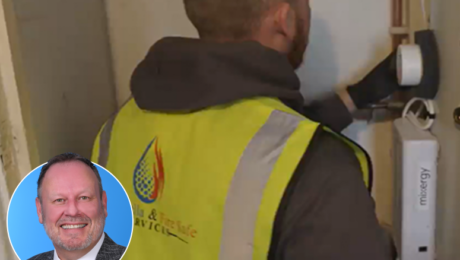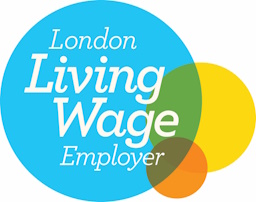Sara’s Blog: Chambers’ gender equity campaign launches to mark IWD 2023
To mark International Women’s Day 2023, The British Chambers of Commerce (BCC) have launched a three-year gender equity campaign based on the findings of a survey with panel provider Find Out Now.
The BCC campaign is an excellent piece of work, based on the evidence from business women in the Chambers’ network. But there is also the bigger picture – this week the General Secretary of the UN, António Guterres, warned progress on women’s rights is “vanishing before our eyes”, saying the increasingly distant goal of gender equality will take another three centuries to achieve. He stressed that “in many places, women’s sexual and reproductive rights are being rolled back and in some countries, girls going to school risk kidnapping and assault”.
He called for “collective action” worldwide by governments, civil society and the private sector to provide gender-responsive education, improve skills training and invest more in “bridging the digital gender divide”. And women all over the world should work to support each other to achieve this.
As a woman and a leader, I know how important it is to support other women. There have been countless instances during my career journey where I have had to push to get my ideas and views across and I see the role of the Chambers’ as campaigner and to raise awareness to ensure policies around gender equality stay at the top of the Government’s – and everyone’s – agenda.
The BCC/Find Out Now survey of over 4000 respondents reveals that three key issues are causing a barrier to women’s career progression in this country:
- Childcare
Two-thirds (67%) of female respondents who have had childcare responsibilities in the last 10 years felt they missed out on career progression as a result.
- General caring responsibilities
77% of male respondents believe there is not sufficient support available for people with non-paid caring responsibilities for elderly or disabled relatives or friends. This figure increases to 86% for female respondents.
- Menopause and women’s health
Almost three quarters (74%) of female respondents feel there is not sufficient support for those experiencing menopause. One in three (34%) female respondents who have gone through menopause felt that it impacted their career negatively.
The BCC is committed to facing these challenges head on by levelling up for women in the workplace, through its three-year campaign:
- Short-term action: Convene employment experts, Chamber CEOs and employers to create a Chamber Workplace Equity Commission
- Medium-term work: The Commission to analyse research findings and case studies, to develop policies for Government and best practices for businesses enshrining equity in the workplace.
- Long-term goal: Re-run the same survey with the aim of moving the dial on the findings we are publishing today.
You can read the full report here on the BCC website, here.
And I would hope that every woman taking part in any International Women’s Day event, will pledge to support women across the world who are fighting for the rights that we take for granted and on which we base our new campaigns. And please read the brilliant Invisible Women | Caroline Criado Perez which shows how the world we live in is not designed for women, anywhere.
- Published in News
Businesses invited to briefing session on new £3.4m Shared Prosperity Fund
Staffordshire Moorlands District Council are inviting local businesses to join them at initial briefing sessions on the development of opportunities for businesses and communities under the UK Shared Prosperity Fund (UKSPF).
The first hour of the event will be focused on UKSPF followed by information on development of the Arts, Culture & Heritage sector. There are a number of exciting opportunities being developed alongside the business community.
Interested businesses are asked to book onto the most convenient session by contacting:
- Leek – info@leektowncouncil.gov.uk : 30pm – 4.30p.m UKSPF/ 5:00p.m – 7.00 p.m: Arts, Culture & Heritage – 8th March at Moorlands House – ST13 6HQ
- Cheadle – info@cheadletowncouncil.co.uk: 30pm – 4.30p.m UKSPF/ 5:00p.m – 7.00 p.m: Arts, Culture & Heritage – 13th March at the Cheadle Town Council Chamber – ST10 1LG
- Biddulph – office@biddulph-tc.gov.uk: 30pm – 4.30p.m UKSPF/ 5:00p.m – 7.00 p.m: Arts, Culture & Heritage on 15th March at Biddulph Town Hall – ST8 6AR
The UKSPF is part of the national Levelling Up agenda and is based on three investment priorities which are Communities and place, Supporting local business and People and skills.
The two-year programme aims to increase life chances for residents and help to build pride in place based on three investment priorities:
- Communities and place
- Supporting local business
- People and skills
Staffordshire Moorlands District Council is inviting applications for the first grants and funding opportunities to be made available from the £3.4m UK Shared Prosperity Fund. Full details of the current funding opportunities can be accessed here.
- Published in News
Declan’s Policy Update: Chambers’ Digital Forum
Staffordshire Chambers of Commerce recently held our first digital forum of the year, hosted at our Stafford office. As a digital forum, it was appropriate that members had the ‘hybrid’ choice to attend in person or join remotely.
Looking back at the pandemic it is now apparent that many of us suffered from online meeting fatigue. Many new phrases entered our vocabulary, including “you’re on mute!” and “have you tried switching your camera off?” Feedback suggests that hybrid meetings work well, bringing people together but also avoiding the need to travel.
We discussed digital connectivity for our rural communities in Staffordshire, which are home to almost 60% of Staffordshire’s residents. We believe that by supporting the development and progression of our rural areas, we can promote rural economic growth.
Access to a reliable digital connection is crucial for businesses in our region. Gaps in broadband and mobile connectivity stifle business productivity and competitiveness. We want to bring an end to ‘digital exclusion’ with rural businesses having access to decent connections allowing them to compete with rivals based in urban areas.
We want to see cutting-edge high-speed communication infrastructure, which will underpin Staffordshire’s digital future and enable businesses to fully exploit commercial opportunities in the digital ecosystem.
During the last ten years, Staffordshire County Council has worked in partnership with Openreach and the Department for Digital, Culture, Media and Sport (DCMS), to deliver the Superfast Staffordshire programme, aiming to connect ‘hard to reach’ communities to superfast broadband speeds (at least 24mbps) where there was no commercial provision, allowing 97% of Staffordshire properties to have available connectivity, with a take-up of 80%.
Getting better digital access for all businesses is one thing. Having a skilled and digitally capable workforce, is another. Digital skills have so many applications across a number of sectors and now Staffordshire Chambers of Commerce has been awarded the opportunity of developing a Local Skills Improvement Plan (LSIP) for Stoke-on-Trent and Staffordshire.
Skills shortages are regularly highlighted by businesses as a key recruitment issue and the LSIP will aim to bridge the gaps between what skills businesses need and the capabilities of training providers to meet those needs.
We heard from Newcastle & Stafford Colleges Group (NSCG), who mentioned that first year learners studying the T-Level Digital Pathway, had been getting industry ready after heading out into workplace settings on extended placements. This will allow students to develop their practical skills within a workplace environment. It could help to offer a practical solution to a problem or suggest a process improvement.
This links in with my previous blog in National Apprenticeship week, which mentioned our differing learning styles and by giving students the chance to apply learning in a practical environment, they will be see practical outcomes and results, helping to reinforce their learning.
We all know that Staffordshire is a great place to do business, with outstanding transport connectivity and a talented workforce. Ongoing investment in digital infrastructure and the practical application of digital skills will deliver continued growth and prosperity. If you would like to join our digital forum and share your views, please contact: declan.riddell@staffordshirechambers.co.uk
- Published in Influence & Network
Sara’s Blog: Sadness as the BIC closes and your Daily Focus
Staffordshire is a county known for innovation. We make just about everything here, not just our world-famous ceramics (with tableware to hi-tech applications), but automotive components, sheet metal products, textiles, glassware, plastics, food and drink and so much more. When you add in the vibrant service, education, retail, tourism, hospitality and agriculture sectors, there is very little we don’t do and do well here.
It was therefore extremely sad news to hear of the closure of The Staffordshire Business Innovation Centre, or the BIC as it is better known, earlier this week. It has been an integral part of the business landscape for almost three decades, providing expert advice, guidance and funding for countless innovative projects since 1995. Over the years it has supported more than 5,000 companies, worked on dozens of projects and awarded millions of pounds in funding.
The BIC’s work has always been complimentary to the work of Staffordshire Chambers of Commerce, and we have worked together since they were formed, signposting and recommending each other’s services so that every business had a complete package of support to enable them to grow by bringing innovative products and services to market.
The concern now is that this could be the first of many organisations which support business growth and communities, and which have used European funding to provide great services, that may disappear. And not just those supporting businesses but voluntary organisations which support some of our most vulnerable people.
The Chambers is determined to do what we can to fill the immense hole left by the BIC’s closure and we will assist companies in finding new sources of financial help and expertise to support their creativity and innovation. We will communicate news on new funding opportunities as they appear.
I would like to offer thanks to Geoff Riley and the BIC team on behalf of the entire business community of Staffordshire for their hard work and dedication to keeping Staffordshire at the forefront of innovation and for leaving a legacy which we will do our best to continue – and live up to.
And companies that are innovative, creative, raising the bar on sustainability, using digital brilliantly and are generally doing well in Staffordshire are encouraged to enter the Staffordshire Chambers Awards Awards 2023 – Staffordshire Chambers.
Hopefully, you are getting the new and brilliant Daily Focus newsletter (and if not here’s how you don’t get FOMO Subscribe – Daily Focus (daily-focus.co.uk). It’s the best way to be fully informed of all the local and national business news, relevant to all sizes and sectors of Staffordshire business and will arrive in your inbox at 8.30am every weekday.
And we want to hear from you so tell us what your business is up to – if you have any news stories, please send them to the Daily Focus team: news@daily-focus.co.uk
If you want to talk to us about any business issues, including funding, you can call our switchboard on 01782 202222 or call the Stoke and Staffs Growth Hub Helpline on 0300 111 8002 or email: info@staffordshirechambers.co.uk
- Published in News
SDG 1, Zero Poverty spotlight with VAST
Eradicating extreme poverty for all people everywhere by 2030 is a pivotal goal of the 2030 Agenda for Sustainable Development. As part of our focus on SDG 1, Zero Poverty, we’ve teamed up with VAST who have written a guest blog looking at soaring costs, falling funding and the Impact of the cost-of-living crisis on the voluntary sector.
“As the cost of everything continues to rise, the people in our communities need ever greater support to help them to make ends meet. A new report from Staffordshire University, in partnership with York University and Citizens Advice Staffordshire North and Stoke-on-Trent, highlights the widespread poverty and deprivation issues that families and individuals are facing across the city.
Previously branded as the ‘Capital of Debt,’ people in Stoke-on-Trent have been experiencing financial pressures for years, struggling to maintain a basic standard of living, let alone repaying debt. But the COVID-19 crisis has caused more serious ongoing problems for residents in the local area: rising unemployment and huge numbers of people claiming Universal Credit and other benefits. Now, the cost-of-living crisis is making life even more difficult for even more people. Benefits are too low, wages are too low, inflation is high and rising, and something as simple as keeping warm is costing much more than people can afford.
This ‘Families on the Brink in Stoke-on-Trent: How austerity and the cost-of-living is driving poverty and destitution’ report explains how austerity is “driving the long-term cuts to health, benefits and public services” which is increasing the already critical level of health deprivation and lowering the life expectancy of those living in poverty.
“Millions of households are at financial breaking point: running down savings, going without bare essentials and turning to food banks to get by.” – Dame Clare Moriarty, Citizens Advice Chief Executive.
More and more people are struggling, making tough decisions, and are turning to local community organisations for their help to get them through tough times, but the cost-of-living crisis is affecting charities and voluntary sector organisations too.
In times of crisis, charities, voluntary organisations, and community groups are always there to provide vital support to vulnerable people whether that’s food, household essentials, PPE, volunteers, time, money… the list is endless. During these crises, the voluntary, community and social enterprise sector goes above and beyond to support their communities and make sure that people have what they need. But no matter how big or small their teams, no matter how much support they give to their beneficiaries, and no matter how big an impact they make in those communities, demand is all too often outweighing the resources they have available.
The voluntary, community and social enterprise sector made great things happen during the COVID-19 pandemic. They are flexible and can react to rapid increases in demand far more quickly and effectively than the Public Sector. As a sector, we are more prepared for times of extreme pressure and better equipped to meet the challenges that come with it, but the cost-of living crisis is having a massive impact on people from all walks of life and means that there are more people needing help than ever before.
Although the huge swell in the number of people needing support was not unexpected, not-for-profits are also trying to navigate this crisis too with declining funding and soaring costs. Four-fold increases in heating bills are not unheard of within the sector, and rising inflation means they need to try and find extra money to cover their overheads. In a recent cost-of-living survey[1] VAST found that the biggest concern for charitable organisation in Stoke-on-Trent was utilities and the rise in energy costs with 85% expecting their expenditure to rise.
Most small charities are employing staff on minimum wage. They will have no option but to find money to pay their staff more when this increases, and the staff deserve it. A recent survey by Pro-bono Economics found that charity staff paid 7% less per hour on average than workers in other sectors. This will mean that charities and other VCSE organisations will struggle to retain their staff. Inflation is very rarely built into charity grants and contracts, so funding remains static, and the recipients of that funding must make do and desperately try to make up the difference from other sources. Indeed, given the levels of austerity and savings that must be made by both local and national government many are facing cuts to their funding, not increases.
When our communities struggle, demand for VCSE services rises quickly and many aren’t able to find the additional capacity to cope. As austerity hits, national government is cutting funding to local authorities. These cuts have seen many statutory services cut and less direct support delivered to fewer communities which puts added pressure on the voluntary, community and social enterprise sector and alternative funding sources cannot automatically increase to meet this sudden extra demand.
Stoke-on-Trent is one of the most deprived areas in the country where more than one-third of children are living in low-income households[2], over 22% of people experience fuel poverty[3] and are facing the horrendous choice of whether to ‘heat or eat,’ and foodbanks are seeing a 500% rise in referrals[4] for emergency food supplies. Stoke-on-Trent Foodbank has reported record-breaking months in both December 2022 and January 2023 with 2,470 people fed in December and 2,671 in January 2023(usually demand peaks in December). Stoke-on-Trent City Council, like many other local authorities has had to look at saving huge amounts of money in this financial year, and this is likely to only increase over the coming years too. Although there is often a lag to the voluntary sector as contracts are already in place, these cutbacks will be felt by VCSE groups all over the city.
The cost-of-living survey we carried out also found that 65% of voluntary sector groups have seen a surge in demand for their services, and half of organisations don’t have enough resources to meet that demand. To help support these struggling voluntary groups and to enable them to provide crucial support to their communities, in partnership with Stoke-on-Trent City Council we have provided a wealth of cost-of-living advice, information, and help for organisations, as well as residents, under the #StokeonTrentTogether banner.
Originally created to provide support during COVID-19, #StokeonTrentTogether is a one-stop-shop for support across the city and includes VAST’s Community Health Champions and Totally Stoked projects as well as support for Ukrainian refugees and the Stoke-on-Trent Community Directory. The cost-of-living support includes the city’s Stronger Together Through Winter campaign’s Welcoming Spaces network. Welcoming spaces are community spaces (such as a community centres, libraries or places of faith) where people can meet up in a warm place to socialise, and access support relating to the cost-of-living crisis. There are almost 80 community spaces registered as a welcoming space in many areas of Stoke-on-Trent including in Fenton, Burslem, Bentilee, and Hanley and the number is growing all the time.
VAST is here to help organisations through this struggle and can provide support to help them to navigate the cost-of-living crisis that is affecting the VCSE sector as much as it’s affecting communities. For any voluntary groups need support, they can visit sottogether.vast.org.uk or email support@vast.org.uk. Our local charities need as much support as they can get, many are looking for additional volunteers and all would appreciate donations. If you would like to support the wider offer in Stoke-on-Trent you can contribute to the newly established Stronger Together Through Winter Appeal being run by The Community Foundation for Staffordshire that will be used to support local organisations help our communities. Any businesses wishing to donate a larger amount to this appeal can contact the Community Foundation directly.
[1] VAST Cost-of-Living Survey 2022 | vast.org.uk
[2] End Child Poverty | endchildpoverty.org.uk
[3] End Fuel Poverty | endfuelpoverty.org.uk
[4] The Guardian | theguardian.com
- Published in News
Sara’s Blog: Chambers call to Chancellor to relieve recruitment pressure and clean air zones– creating more problems than they solve?
Following on from the release of British Chambers of Commerce (BCC) research which reveals how low business confidence has fallen at the start of 2023, Chambers are calling on the Chancellor to use his Spring Budget to relieve cost and recruitment pressures on business.
Key findings from the firms surveyed in the research are that 65% plan to raise prices due to cost pressures; almost half (47%) say paying energy bills will be difficult when the current business support package ends; more than half (52%) are consistently experiencing difficulties recruiting staff and concerns around regulation and taxation are regularly troubling a third of firms (30%).
The survey backs up findings from the BCC’s most recent quarterly economic survey of more than 5,000 companies (over 150 being from Staffordshire) which found business confidence remains at Covid-crisis levels.
It found that only 34% of businesses believed their profits will increase over the coming year, whilst 36% expected a decline. A quarter of firms reported a decrease in sales in the last quarter of 2022, with hospitality firms the least likely to report improvements.
This snapshot of the state of play for business at the start of 2023 sets out exactly why the Chancellor must act in his budget to fuel investment in the UK.
We know we have a tough year ahead. With costs piling up on their doorsteps and so much uncertainty on Government policies, there is currently little incentive for firms to risk either their dwindling cash reserves or fresh loans on new projects.
The UK’s finances are tight, but the Chancellor needs to show more faith in the ability and talent of our businesses.
The BCC has set out four key areas where the Chancellor must act in the budget if businesses are to make headway in bolstering the economy in 2023.
- Unlocking talent and easing pressure in the labour market by making childcare more affordable for cash-strapped parents and guardians
- Boosting the UK’s start-ups by further reforming the business rates system to remove the upfront financial squeeze they face
- Setting a framework for Solvency II investment that helps direct funds to SMEs where they can have the most impact, leveraging the opportunities of green innovation
- Funding to help businesses become greener and more energy efficient
If you have any issues and concerns around any of the points above, please get in touch with Declan Riddell at the Chambers: declan.riddell@staffordshirechambers.co.uk
All this week in our Daily Focus we have been highlighting the impact of a proposed bus gate and clean air zone (CAZ) on the A53 at Basford and Victoria Road in Fenton respectively.
The planned bus gate in Basford proposes that motorists would not be able to travel westbound on the A53 Etruria Road (Basford Bank) from the A500 junction towards Newcastle-under-Lyme during rush hours i.e., 7am to 10am and 4pm to 7pm on weekdays.
While we agree with the overarching aim of reducing air pollution and support the importance of protecting and promoting health, there is a real concern about the levels of consistency being applied when it comes to rolling out measures to tackle pollution.
We have written to Government ministers raising major concerns over the plans which the Government want to implement by 2025. The three local authorities involved i.e. Stoke-on-Trent City Council, Newcastle-under-Lyme Borough Council and Staffordshire County Council have also made joint representations to ministers seeking support to identify and deliver solutions that are more proportionate to the scale of the pollution that is predicted to exist in 2025.
Air quality on Etruria Road will likely be displaced rather than reduced to what is deemed acceptable. And there are many businesses based along Etruria Road and nearby Festival Park and their employees and customers will find it more challenging to reach the affected businesses each day as highlighted in Daily Focus.
There is real concern about the financial impact on businesses in the proposed CAZ stretching from Fenton to Joiners Square and Hanley as any businesses with vans and lorries which do not meet emissions standards, will be forced to upgrade fleets or pay a charge each time when entering the CAZ area.
If deliveries are made by vans and lorries that do not meet emissions standards, this charge may be passed on to the business based in the CAZ, who will face the dilemma of having to absorb the cost or pass it on to the customer.
We are inviting businesses to have their say on the CAZ and bus gate proposals in our quick poll to aid our representations to local authorities: http://bit.ly/3kl4XXr
If you want to talk to us about any business issues, including funding, you can call our switchboard on 01782 202222 or call the Stoke and Staffs Growth Hub Helpline on 0300 111 8002 or email: info@staffordshirechambers.co.uk
- Published in News
Sparkle Day to raise vital funds for children living with disabilities and terminal illnesses
Newlife are calling on local businesses and organisations to support their Sparkle Day, set to take place on Friday, 3 March.
The awareness day will help to ensure that children living with disabilities and illnesses can receive the vital specialist equipment that they need. Businesses are invited to get involved with a number of initiatives, including a sparkly dress-up day.
Head of Public Fundraising, Newlife the Charity for Disabled Children, said: “At Newlife, we believe that every child has the right to fulfil their potential and live their very best life.
“By taking part in Sparkle Day, you’ll help us to raise crucial funds, enabling us to support even more children and their families across the UK.”
From specialist beds, buggies, wheelchairs and sensory toys, every penny you raise will help to change a child’s life. Find out more and get involved, here.
- Published in News
Legionella & Fire Safe Services launch new Energy Saving/Net Zero Division
Staffordshire-based Legionella and Fire Safe Services has launched its Energy Saving/Net Zero Division and, through an aligned partnership with Water Tank manufacturers, Mixergy, is now working with Birmingham City Council installing energy-saving water tanks.
Local authorities across the UK are facing the critical challenge of tackling the fuel poverty crisis while reducing their carbon emissions. Funded retrofit programmes are offering a unique opportunity for councils to upgrade their housing stock to help their tenants to live better now while getting ready for the energy transition ahead.
Following their declaration of a climate emergency in 2019, Birmingham City Council set an ambitious target to reach net zero by 2030, 20 years ahead of the UK government’s 2050 target. To support this programme, they recently announced plans to retrofit a large number of properties in the Birmingham region to test thermal efficiency approaches, reduce carbon emissions, and provide energy savings for their tenants.
Legionella and Fire Safe Services are currently working in conjunction with Equans UK & Ireland and Fortem Solutions. Providing a minimal disruption installation, including all carpentry and essential fire-stopping works and also knowing installing these tanks reduces the risk of Legionella with monitored correct temperatures and built-in bacteria cleansing cycles.
Legionella and Fire Safe Services delivers service excellence to all clients from the experienced engineers and field-based supervisors. This ensures all aspects of the installations are to the highest standard.
Employment numbers for the already 60 strong team is likely to increase by another 35, from specialist trades through to administrating team members, for this division alone in 2023.
Steve Morris, Managing Director of Legionella and Fire Safe Services, said: “We are very proud to have recently launched the Legionella & Fire Safe Energy Saving / Net Zero Division. A major part of this division is our MIXERGY cylinder range. Since coming to market, MIXERGY are rapidly making huge inroads into the hot water cylinder market with technology on the forefront. We have installed these to over 260 council properties in 2022 with a further 600 planned for 2023. Birmingham City Council, the largest local authority within the UK have committed to strategic vision of the future to install these at appropriate properties over the coming years. Legionella & Fire Safe are proud to be an integral part of this journey.
From our early installations the energy saving numbers are simply quite incredible. On average each small flat is saving around £550 per year through smart technology.
We are in an aligned partnership with Mixergy & Birmingham City Council, where Legionella & Fire Safe are known as the social housing experts. Our turnkey solution for retrofit installs including all fire stopping compliance work and legionella compliance.”
Legionella and Fire Safe Services has come a long way since it was set up in 2017 .It has secured major contracts in several industries since then, including local authority, retail, education, manufacturing and hospitality, and is leading the way in innovative new products and processes.
The Company which has a Legionella Compliance Division, a Fire Division and a Construction Division, has also been recognised for its employees wellbeing, “We are nothing without our People” taking exceptional care of their employees and also offer some great perks and benefits, has a Legionella Compliance Division, a Fire Division and a Construction Division.
- Published in Uncategorized
Sara’s Blog: ONS labour market figures and free water-efficiency audits
The latest Office for National Statistics (ONS) labour market figures are showing no easing up of the number of vacancies, creating a headache for employers and a real barrier to economic growth.
Businesses are crying out for people to fill job vacancies at all skill levels, and this must be the number one focus for government if it’s serious about economic growth.
There are still a huge number of vacancies, currently sitting at 1.134 million, and this is stopping firms in their tracks.
And it was announced by Staffordshire County Council this week that the number of job vacancies in the county has increased to more than 30,000 – up nearly a third in just a month.
Latest figures show that in Stoke-on-Trent the number of unfilled positions had leapt by 34 per cent to 8,700. This is just above the number of work-related benefit claimants (8,510).
In the rest of Staffordshire, the number of vacancies jumped up 26 per cent to 21,900 between December and January compared to the previous month. This is far higher than the number of work-related benefit claimants (14,700).
It means firms are struggling to meet the orders on their books, and it puts any plans for growth far out of reach.
I have heard this message from many businesses in our area who are also seeing the effect this pressure is having on wages, currently at the highest rates seen in the private sector outside of the pandemic. However, a sharp rise in rates of pay is still being outstripped by inflation. This has been identified by the Bank of England as a factor in its decisions to raise interest rates to tame inflation.
Government plans to get the UK’s untapped labour force into employment are a step in the right direction, but we need to see more action to address the barriers that are holding people back.
The Spring Budget represents a golden opportunity for the Chancellor to ease the pressure on family members who have been squeezed out of the labour market by punishing childcare costs.
Older workers need carefully tailored careers advice, job seeker support and rapid re-training opportunities to help bring their skills and experience back to the workforce.
Businesses can help by adopting flexible working policies wherever possible and supporting staff training needs.
And crucially, something I mentioned only last week, Government should reform the Shortage Occupation List to help firms fill urgent job vacancies from outside the UK when they cannot recruit locally. The List should include jobs at all skill levels where there is clear evidence of a national shortage.
The full ONS labour market statistics can be viewed here: Labour market overview, UK – Office for National Statistics (ons.gov.uk)
If you would like to raise any issues around employment difficulties contact our policy advisor Declan Riddell: declan.ridell@staffordshirechambers.co.uk
Better news now – Severn Trent are offering free water-efficiency audits for businesses to help make sure their water facilities are up to date and not leaking.
The initiative is part of Severn Trent’s Green Recovery Programme , offering businesses the chance to check their facilities are working efficiently and, where any upgrades or repairs are needed, the company will fix internal leaks free of charge.
Severn Trent, which serves thousands of firms and homes across Staffordshire and beyond, says a typical leaky toilet or dripping tap could cost a business up to £300 a year.
They understand many businesses are facing uncertainty and upgrading their water facilities may not be on the top of a business’s list of priorities. It is pleasing therefore that they are offering to do all of this at no charge.
Severn Trent will undertake a full ‘health’ check of the water facilities, and make sure money is not being wasted, and that your business is running as efficiently and watertight as possible.
Businesses often lose money through urinals, which often flush regardless of use. By installing sensors, savings of up to £3,000 could be made depending on business size. Also fixing something like a leaky toilet could save up to 400 litres of water a year, which would be money businesses would pay for, but not be using.
For more information, and to sign up click here: Supporting Local Businesses | Green recovery | Wonderful on Tap | Severn Trent Water (stwater.co.uk)
If you want to talk to us about any business issues, including funding, you can call our switchboard on 01782 202222 or call the Stoke and Staffs Growth Hub Helpline on 0300 111 8002 or email: info@staffordshirechambers.co.uk
- Published in Uncategorized
Staffordshire businesses to expand globally with help of export documentation training course
In today’s global economy, many businesses are looking to expand their reach beyond domestic markets and tap into the vast potential of international trade. However, navigating the complex world of export documentation can be a daunting task for even the most experienced businesses.
To help companies understand and manage the intricacies of international trade, a training course has been launched by Staffordshire Chambers of Commerce, offering comprehensive training in export documentation.
The course, developed by industry experts with years of experience in international trade, looks at the end-to-end export process providing an understanding of the export documentation requirements and shipping using freight forwarders and couriers.
Objectives for the course, taking place online on Wednesday 22nd March from 9:30am – 3:30pm include:
– How to review and discuss the process from enquiry to dispatch including transport options, intercoms, insurance, licence requirements and documentation
– Quotation
– Order Acknowledgement / Pro Forma Invoice
– Packing guidelines and Rules
– Generating the Shipping Documents to include invoices and packing lists
– Moving goods including booking considerations, courier shipments, freight forwarders, declarations and contracts of carriage.
– Proof Of Export
– General good business practice
Participants will learn the necessary skills and knowledge to streamline their export documentation process, reduce costs and errors, and avoid delays or rejections at customs. The course is also designed to help businesses stay up-to-date with the latest trade regulations and requirements, which can change rapidly in the global market.
The course is open to businesses of all sizes and industries, and is particularly relevant for those looking to expand their reach into new markets, or for those that have struggled with managing their export documentation in the past.
The course is available online, making it accessible to businesses from anywhere in the world, and is self-paced, allowing participants to fit the training around their busy schedules. The creators of the course hope that it will help businesses to unlock the potential of international trade and boost their growth and profitability in the years to come.
Spaces are allocated on a first come, first served basis and a discount is available for Staffordshire Chambers members. To find out more, click here, or email the Staffordshire International Trade Centre Manager, Allison Tomlinson, on allison.tomlinson@staffordshirechambers.co.uk
- Published in News















